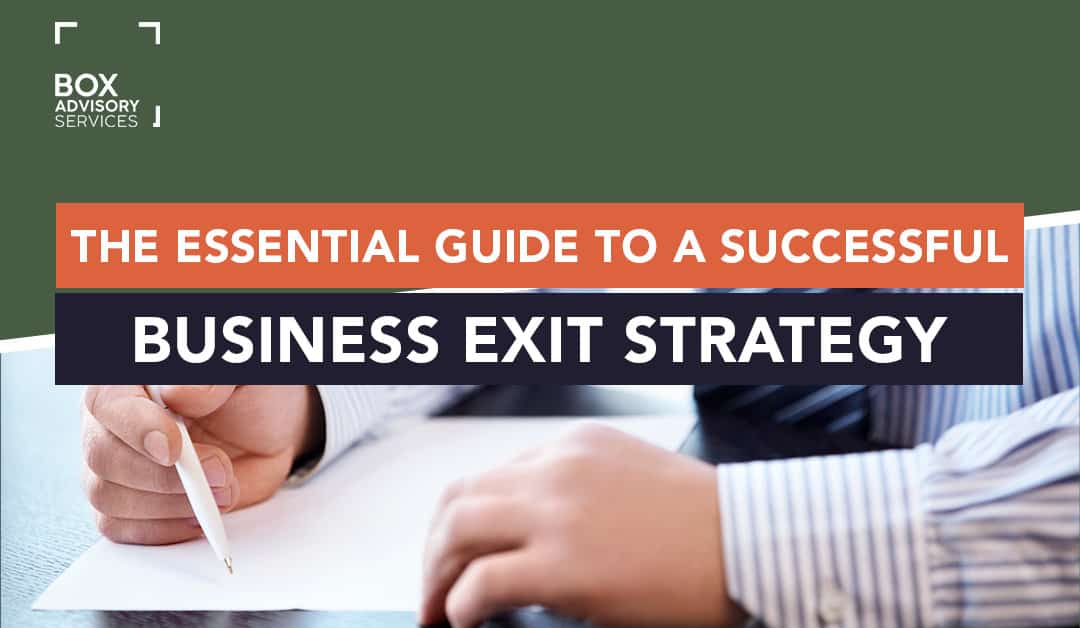
BY
|
The Essential Guide to a Successful Business Exit Strategy
When starting your own business, it’s easy to not think about when you’ll need a business exit strategy.
But as life happens and priorities change, so might your vision for your small business venture.
That’s why it’s important to have a clear and concise business exit strategy in place; not only to help protect you from unforeseen circumstances but also to ensure that you get the most out of your business endeavour when the time comes to make decisions about how best to move forward with your company long-term.
There is no right or wrong answer when choosing your business exit strategy – there are different exit strategy paths you can take depending on your current circumstances and future goals.
So, to help you navigate establishing a successful business exit strategy, we’ve put together this guide.
The guide aims to identify what a successful business exit strategy is, how to establish one and what exit strategies you have to choose from for you and your business.
What Is a Business Exit Strategy?
A business exit strategy is a plan that you put in place ahead of time to know what should happen with your business when the time comes for you or another key decision-maker to leave.
For example, you may want to ensure that there will be an experienced professional available who can take over from where you left off and maintain continuity within your business. There are many types of exit strategies to chose from.
What Should You Consider When Creating Successful Business Exit Strategies?
Some key elements to consider when crafting your small business plan and business exit strategies:
- The sooner, the better: having an exit plan in place from the get-go (even if it’s decades before you plan to exit) minimises the obstacles you may face when the time comes time to exiting (or selling) your business.
- Identify your objectives: For some business owners, the primary end goal is financial freedom, so their exit strategy objective (and business plan) involves cashing out on profits. On the other hand, some business owners, who have achieved financial freedom from other investments, simply want to have their legacy live on (succession planning). Establishing how you plan to leave your business helps identify objectives and activities towards accomplishing those specific company objectives.
- Establish a timeline: another consideration that you should factor in is the business’ time frame – when would your ideal time be to exit? At retirement? Once your small business has reached a certain profit margin? And while having a timeline is useful, remember always to be flexible and allow your small business to grow and reach its full potential.
- Have more than one exit option: What are your business’ plans for a smooth transfer of ownership? Do you plan to sell the company outright, or would you prefer another company buy it from you? What happens if your business can’t reach its full potential and you’re forced into an exit strategy?
- Review your plan: you must revisit your plan often. Then, as new opportunities arise or challenges come up, you’ll need to update your original approach to ensure that it aligns with your current circumstances and potentially new objectives.
- Have a trusted team of advisors: you’ll need a team of trusted business advisors to help you set up your business exit strategy and carry it through. An accountant will help with advice on due diligence issues and tax implications, while a lawyer will help with the logistics of the exit strategy. A business valuer will advise on your business’s current value and its potential value if you do X, Y and Z. You may also want to consider a financial planner to help with your investment options.
What Are the Most Common Types of Exit Strategies?
The following are the most common ways you can exit your business as a business owner. But remember, the exit option will depend on your business plan and business circumstances:
- Merger or acquisition: arguably the most common exit plan is to position your business as an attractive purchase to potential buyers. As the business, owner, you can either elect to sell the business to another company (acquisition) or have the business continue its activities by merging (selling) your business unit within another company.
- Initial Public Offering (IPO): an initial public offering (IPO) exit strategy involves selling your private business share to the public. Once they’re sold, the shares are listed on a stock exchange. But this strategy is generally only viable if your business has a strong infrastructure, substantial profit and revenue stream to invite public investment.
- Liquidation: liquidating a business is usually last on most a business owner exit strategy list because it involves selling all business assets (at market rate), paying creditors and closing the business. While this isn’t necessarily a winning strategy, you may find yourself in a situation where liquidation is the only option – especially if the business is drowning in debt and acquisition is not a viable option.
- Friendly sale: instead of an acquisition, you could sell your company to someone you know, like a colleague, a friend or a family member.
- Succession planning: if you’re running a family business, the end goal may be to hand over the company to your next generation and have a succession plan in place. A key family member is usually appointed and trained to ensure that the business continues to run once you exit.
The key to a successful strategy is having more than one business exit strategy on your list. So, when the time comes to exit, you can implement the one that’s best suited for your business and your future beyond the company.
For example, your original business exit strategy may have been to set up your company for an acquisition sale. But, after 30 years of running your business, you may have a family member that’s interested in carrying on your legacy (succession planning).
Key Takeaways
What should you consider when creating a successful exit strategy? One thing to think about is whether or not you want to sell the business for cash, keep it in the family, continue your legacy, or have another business or an existing key stakeholder.
All these options can be very different depending on what kind of goals you have in mind.
Either way, you’ll need a team of trusted business advisors and accountants in your corner who will help with every step from establishing your plan to executing its provisions so that everything goes smoothly.
At Box Advisory Sevices, our expert team of Chartered Accountants strive to understand you and your business better to provide you with the best services tailored to your needs, including strategic guidance on the growth and profitability of your business, risk management, financial forecasting and exit strategies.
Get in touch or book a free initial consultation if you have any questions about setting up an effective exit strategy.
Disclaimer:
Please note that every effort has been made to ensure that the information provided in this guide is accurate. You should note, however, that the information is intended as a guide only, providing an overview of general information available to property buyers and investors. This guide is not intended to be an exhaustive source of information and should not be seen to constitute legal, tax or investment advice. You should, where necessary, seek your own advice for any legal, tax or investment issues raised in your affairs.



